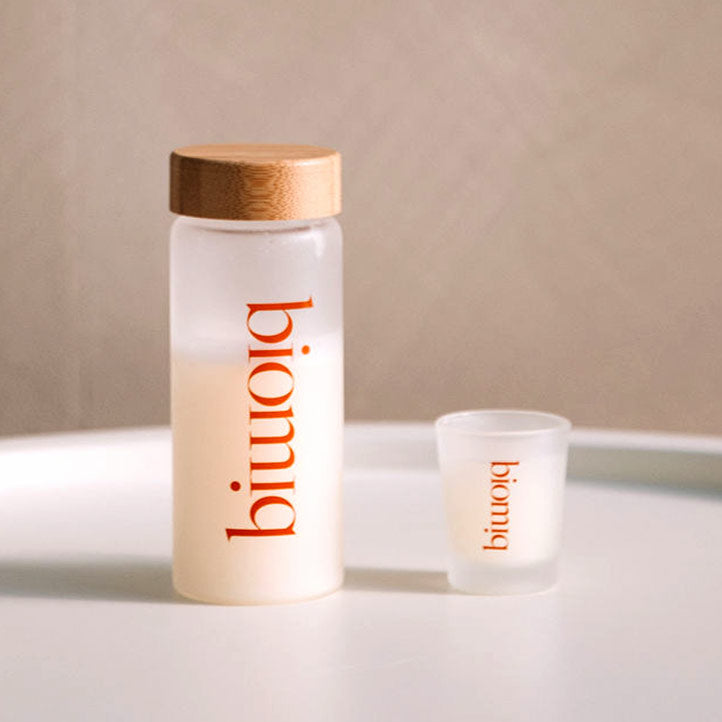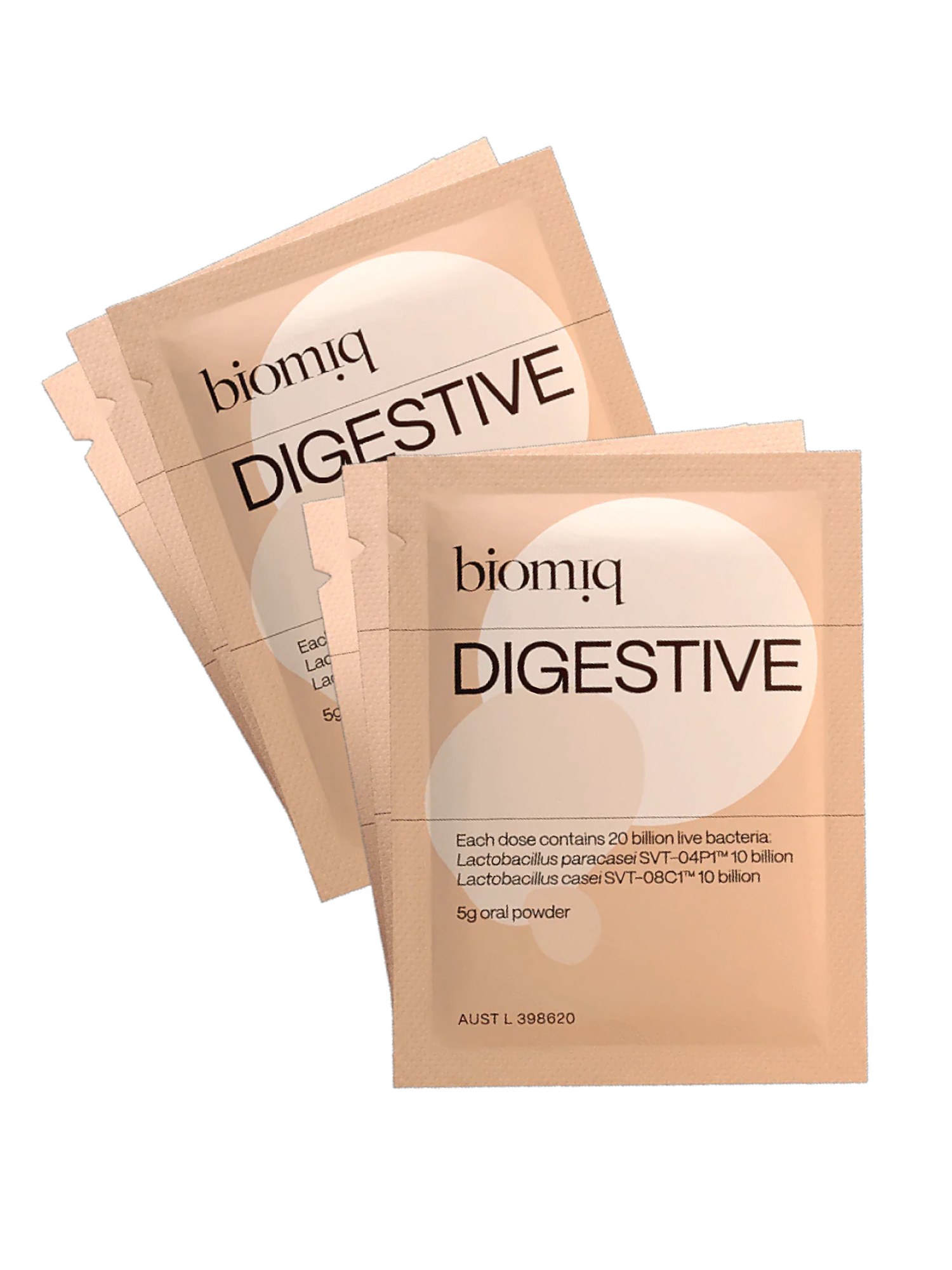The bacteria within your body are absolutely crucial to your health and wellbeing. So, making lifestyle choices that will benefit and promote a healthy microbiota is a great way to reduce your risk of health complications.

Whilst a ‘core’ group of bacteria is assumed to exist within all healthy people, the specific numbers and combinations of microbes that are ‘optimal’ for our health will be unique to each of us and our environments.
This uniqueness can make it hard to define what a ‘normal’ or ‘healthy’ microbiome looks like. However, it is generally agreed that there are certain features that are associated with a health-promoting microbiome, including diversity, stability, resilience to disturbances, and ability to perform all of the important functions required. From the research that has been carried out so far, we have outlined below several key lifestyle factors that are known to impact an optimal and functional microbiome. Happy reading!
1. Diet
The most obvious lifestyle factor that comes to everyone’s mind when considering microbiome health is diet. This connection is because the vast majority of your microbes are found in your gastrointestinal tract, predominantly in your large intestine. Therefore, it stands to reason that the food you ingest is going to have a marked influence on the health of your microbiome.
In 2018, a study (the American Gut Project) found that people who consumed more than 30 different types of plants each week had a more diverse microbiome than people who consume 10 different plant types or fewer. Indicating that the number of different types of plants you eat is most important. Diets that are rich in a wide variety of whole, plant-based foods have therefore been implicated as the best option for improving microbiome health.
High-fibre intake is also acknowledged as a high-ranking factor in good gut health. Fibre (non-digestible carbohydrates), encourages the growth of bacterial species that ferment fibre into metabolites such as short-chain fatty acids (SCFAs). SCFAs improve immunity against pathogens, blood–brain barrier integrity, provision of energy substrates, and regulation of critical functions of the intestine.
2. Activity levels
The association between the gut microbiome and the hormones released when we indulge in light to moderate physical activity is not yet fully understood. But we do know that hormones such as serotonin, norepinephrine, epinephrine, and dopamine are released when we exercise, and these hormones interact with the bacteria in our gut. In 2009, researchers demonstrated that sedentary animals (mice) were less able to absorb essential nutrients from their food compared with active animals on the same diet, showing how staying active means so much more than burning calories!Scientists also found that performing just three hours of ‘light exercise’ per week – such as a short brisk walk each day – significantly increased people’s levels of beneficial bacterial species.
3. Time Outside
Being outdoors is not only proven to lower stress levels, increase immune system functioning, and improve sleep patterns, but spending more time outdoors amongst ‘natural’ materials (i.e. not man-made) is also correlated with a more diverse microbiome!
Scientists have found that indoor environments have their own unique microbiome, and as most modern humans spend 90% of their time indoors, we are continually touching and exposed to “indoor” microbes. Indoor microbes living on plastic and metal surfaces have different functions to microbes which prefer living on biological materials (like animals, and plants etc). Man-made materials are also more likely to have pathogens on them due to the high-touch nature of these surfaces (e.g. door handles, kettle handles), and may also contain harmful compounds which have been shown to impact gut microbiomes.
A study in 2016 found that even short-term contact with nature-based materials, such as soils and plants, immediately changed bacterial diversity on human skin. So much so that the authors proposed that nature-based materials might be developed as effective treatments for skin and immune disorders!
Our immune system requires regular physical contact with ‘dirt’ (soils, etc) to develop optimally, for example animals (mice) raised on soil floorings had a higher level of anti-inflammatory signalling, reduced incidence of allergic responses, and a marked difference the composition of the gut microbiota,compared with animals raised in clean environments. Having household pets also lowers risk of allergies, asthma, and other autoimmune conditions in children.
4. Stress
The gut and the brain are connected; how else would we ‘feel’ hunger, causing us to ‘go find food’. But further than just the basic ‘hangry’ feelings we sometimes have, the brain and gut also communicate on a much more detailed level. We now know that the same cells which form the brain also form the Enteric Nervous System (ENS) of the gut. The ENS spans the length of the gastrointestinal tract and connects the brain and gut.
Hormones, generated and promoted in the gut, send signals to the brain via both the bloodstream and the ENS (known as the gut-brain axis) and vice versa. Research suggests that stress alters intestinal permeability, inflammation, and also significantly changes the community structure and activity of the microbiota in the gut. Even behavioural states can be altered by changing the gut microbiome, mice displaying anti-social behaviours were found to be deficient in a specific strain of bacteria (Lactobacillus reuteri), and when supplemented with L. reuteri, the anti-social behaviour disappeared.
Stressed individuals also often report having gut health issues or autoimmune-related conditions such as psoriasis indicating a relationship between stress and the gut.
5. Sleep
It is unknown whether lack of quality sleep affects the microbiome, or if it is the other way around (a disturbed microbiome affects sleep), or both!
Researchers found that when sleep apnoea was induced in mice their microbiome was significantly altered, but when the microbiome of the sleep apnoea-induced mice was transferred to other mice, the receiver mice began to suffer from disturbed sleep, indicating that it is likely to be a two-way street.
A further study also found that mice with microbiomes disrupted by a strong course of antibiotics, experienced disrupted sleep cycles, and depleted serotonin levels.
Another compelling study showed that when gut microbiota from jet-lagged humans was transferred into mice, the mice developed obesity and glucose intolerance, an effect that was not observed when microbiota was transferred from non jet-lagged humans! Therefore, aiming for 7-8 hours of high-quality sleep per night is a great place to start when embarking on a new microbiome health journey!

Using powerful, biologically active probiotics, such as biomiq's advanced probiotic range, helps to support your guy microbiome health and assists with regulation of digestive and/or immune health.
Read our other blogs
-

But aren't microbes bad? They make you sick - don't they?
Read ArticleNow scientists and doctors know better and have better technology, which enables them to study the the bacteria that help us to stay healthy. What they have found is that most bacteria do not cause disease when there is just the right amount of them.
-

Microbiome Dysbiosis - What happens when the gut microbiome is disturbed?
Read ArticleOur microbes regulate our digestive and immune systems, protect against germs, break down food to release energy, & produce vitamins. However, this balance can be disrupted by several factors
-

Bacteria are the foundation of all life on earth. Including you!
Read ArticleEvery object and every living being on this planet, has its own microbiome. You have one, your pet has one, your house plants, your kitchen bench top, your phone screen… Everything has a community of microbes & bacteria living on it.








